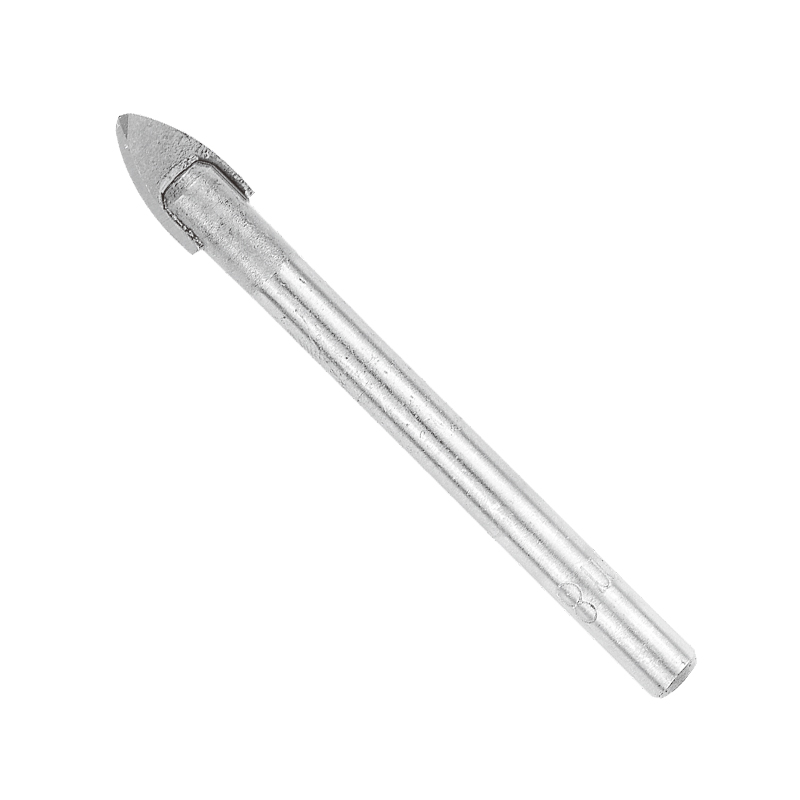2025-05-23
Purpose-Built Design for Fragile Materials
One of the notable advantages of a Glass Drill Bit compared to a regular drill bit is its specialized design. While general-purpose drill bits are intended for materials like wood, plastic, or metal, they are ill-suited for brittle surfaces such as glass. A glass drill bit typically features a spear-shaped or diamond-coated tip, allowing for controlled penetration without cracking or splintering the material. This purpose-built geometry ensures greater precision and reduces the likelihood of slippage during the initial drilling phase.

Reduced Risk of Cracking or Shattering
When drilling into glass, even minor vibrations or uneven pressure can cause it to fracture. Standard drill bits exert excessive force and cut too aggressively for the fragile structure of glass. In contrast, a Glass Drill Bit is designed to gradually grind through the surface instead of tearing into it. This controlled abrasion reduces thermal and mechanical stress, which significantly reduces the chances of breakage. The result is a smoother, safer drilling process that protects the integrity of the material.
Enhanced Control and Accuracy
Glass surfaces are inherently smooth and offer little traction, increasing the risk that a conventional bit will wander or slip at the start of drilling. The pointed spear tip or specialized diamond edge on a Glass Drill Bit allows it to anchor more securely on the surface, improving stability. This enhanced control is especially important when drilling small holes or working on precision installations like mirrors, windows, or glass tiles. Greater accuracy reduces material waste and improves the overall quality of the finished project.
Efficient Heat Management and Durability
Drilling into glass generates significant friction, which, without proper control, causes heat buildup and potential thermal shock. Glass Drill Bits often include design features that facilitate better heat dissipation, especially when used in combination with water or coolant. Some also have a hollow core to enhance cooling and debris removal. These features not only protect the glass but also extend the life of the bit itself, making it more cost-effective over time despite a potentially higher initial price point.
Versatility with Other Hard Surfaces
Although they are specifically designed for glass, many Glass Drill Bits are also suitable for drilling into other hard, brittle materials such as ceramics, porcelain tiles, and mirrors. This versatility makes them a more practical choice for projects involving a combination of surfaces. Using a standard drill bit on these materials often results in chipping or uneven holes. A glass drill bit, by contrast, maintains edge integrity and delivers clean cuts across multiple hard surfaces, reducing the need for multiple specialized tools.
Improved Surface Finish and Clean Edges
Standard bits tend to leave rough or chipped edges when used on glass, which can affect both the aesthetics and functionality of the final product. Glass Drill Bits produce smoother holes with clean edges, thanks to their gradual grinding action. This is particularly valuable for visible applications like glass shelves or bathroom installations where appearance matters. Clean finishes also reduce the need for secondary processes like sanding or polishing.
A Clear Choice for Precision and Protection
In summary, a Glass Drill Bit offers multiple clear advantages over traditional drill bits when working with fragile, non-flexible materials. From reduced risk of breakage and enhanced accuracy to better heat management and multi-surface capability, the benefits are substantial. For anyone undertaking work involving glass or similar materials, investing in the right drill bit is not just about convenience—it’s about achieving safer, cleaner, and more professional results.